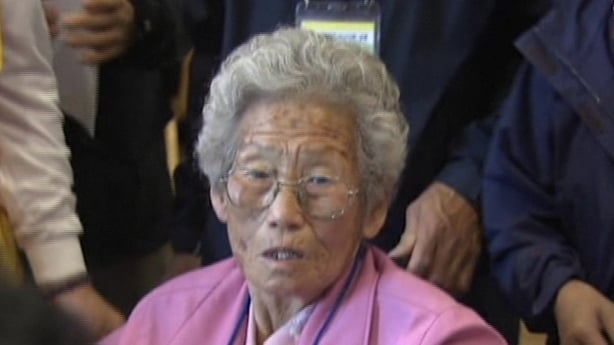Elderly South Koreans are to meet loved ones in the North in a rare reunion this week for families separated by the Korean War of 1950-53.
The two Koreas, bitter rivals that remain in a technical state of war, agreed to hold family reunions for the first time since February 2014 after negotiating the end of a stand-off at their heavily militarised border.
The reunion of 90 South Koreans and 96 North Koreans, the 20th of its kind, will be held at a resort in the North, mostly in a large ballroom under the watchful eye of officials.
The reunions are politically important for the South, where 66,000 people are on a waiting list to see long-lost relatives, a number that is shrinking fast, while the North also seeks to maximise its domestic propaganda value.
Among those travelling North is 87-year-old Lee Ok-yeon who is set to meet her husband for the first time in 65 years.
"I couldn't believe it. I thought they had lied to ease my mind," she said.

"A son who is nearing 70 years of age will meet his father for the very first time and I can only think of offering him a proper meal," she added.
Lee Jeong-sook is also looking forward to the trip where she will see her elderly North Korean father.
"I would like to thank my father's North Korean wife and children for taking care of him. Not even the division of the nation could sever the separated families' profound ties."
When Ahn Yoon-joon, 86, meets his two younger sisters that he has not heard from in more than 60 years, there is much they will not be able to talk about.
A guide book distributed to the elderly South Koreans includes a list of restricted topics.
"You can't ask everything you want to ask. This is not a reunion, but just a meeting that's staged," said a frustrated Mr Ahn, who said the restrictions have dampened his enthusiasm for the upcoming trip.
The booklet provided by the Red Cross, which organises the reunions, advises South Korean participants not to press for answers on topics such as the North's political leadership or living standards.
At the outbreak of the Korean War, Mr Ahn, then an elementary school teacher, fled his hometown fearing North Korean communist forces would conscript him or kill him.
Ahn first thought of a gold necklace for each of his two sisters but since jewellery is banned, he will bring medicine and toothpaste instead.

